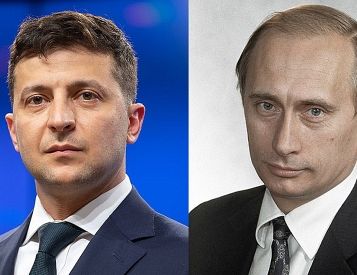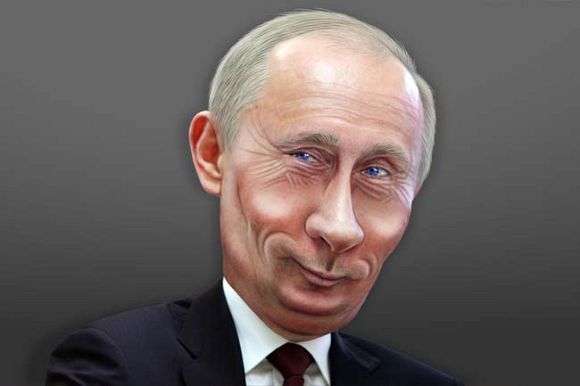Citizen journalism on the Ukraine invasion via YouTube is filling a much-needed gap to inform young people, reports Chris Hall.
THE WAR IN Ukraine has been widely reported in media and endlessly discussed on social media.
The large amount of attention the war has received is not surprising, as Ukraine is the biggest country in Europe (excluding Russia) and Russia is nuclear armed and had what many thought was the second most powerful army in the world. Battlegrounds of this conflict are not only in physical spaces.
Online, fake news has spread and an information war is being waged.
With all that is happening, news media organisations should be a natural place to go for timely, reliable, fact-based reporting on the war. However, around the world, interest in traditional news content is in decline. In Australia, over two-thirds of people actively avoid news to some extent and only 41 per cent of Australians trust news media.
In contrast, YouTube use continues to climb, overtaking Facebook globally for the first time in 2022 and the platform is increasingly used for news, especially for younger people. Recent research has also shown that people trust content more if it is in the form of social media, compared to when the exact same content was shown to them in the form of a news article.
Denys Davydov, Artur Rehi and The Russian Dude, have amassed large followings on YouTube from their almost daily reports of the Russia-Ukraine war. Their reports do not have the same feel as mainstream broadcast news. They produce platform journalism which combines "YouTuber" norms with journalism ideals, such as reporting verifiable facts to inform the public.
They fit the concept of citizen journalists as their reports are focused on a specific issue, they are not trained journalists, and their role is temporary, assuming the war has an end.
Once the war is finally over, it is likely that these "YouTubers" will return to their pre-war activities. Denys will return to his life as a commercial pilot and pilot "YouTuber". The Russian Dude will go back to producing videos on economic issues. And Artur will go back to producing videos on a diverse range of military topics.
In the meantime, the focus of these "YouTubers" is on war reporting. In their reports, they update viewers on the latest developments on the frontline, major events behind the lines, as well as broader political and economic issues that impact the war. The sources they use include statements from Ukrainian and Russian officials, reports from government and open-source analysts, as well as geo-located images and footage uploaded by Russian and Ukrainian combatants, which is often shared on Telegram or TikTok.
On occasions where sources are inconclusive, or lacking in verification, they make it clear. And these creators issue corrections when they make mistakes.
Support for Ukraine is evident with these citizen journalist "YouTubers", so accusations of bias could be levelled against them. However, this is not too different to mainstream journalism, where accusations of bias are thrown around so much that it is almost cliché. That’s not to say that media bias and objectivity are not important considerations, they are, and they are intensely discussed in academic circles.
Their support for Ukraine comes from their experiences, which they share with their audiences. Denys is Ukrainian and has had his life turned upside down by the conflict. The Russian Dude provides a Russian perspective that includes his reaction to being called up to the Russian army. And Artur often shares insights into the attitudes of Estonians and why they support Ukraine.
These "YouTubers" have been impacted by the war and their cultural experience is extremely hard to get as an outsider. This leads to interesting insights.
The main consideration should be whether bias or objectivity negatively impacts reporting. The three "YouTubers" mentioned above don’t try and hide their support for Ukraine from their audience. They do not attempt to report on the war as emotionless, ideal observers.
Arguably, their explicit openness about their bias builds real trust with their audience and this can be observed in the comment sections of their videos. This pro-Ukrainian bias mainly appears in such things as framing Russian military success as bad and Ukrainian success as good. They also occasionally mobilise their audiences to raise funds for Ukrainian charitable causes.
Despite their biases they don't shy away from critiquing the Ukrainian leadership at times and every now and then, they speculate on future military actions and next stages of the war. Though this does not mean viewing Ukrainian efforts through rose-tinted glasses. This kind of commentary is also not unlike what is produced from more mainstream journalists where speculation on how the war will end is common and claims are made about which side is winning.
"YouTubers" are adaptable and have great creative control to adjust and keep their audiences engaged. This can include becoming more journalistic. Artur recently made such a content adaptation, producing a high quality feature story in which he accompanied an aid convoy from Estonia to Ukraine.
The story covered the history and context of the aid convoy, and included interviews with key organisers of the aid convoy. The story also reported on numerous aspects of the war. Artur visited war-ravaged locations and interviewed several Ukrainian soldiers who had recently seen action at the front. The platformed nature of their productions, and their business model, means that they have a lot of editorial control. This means that governments may find them hard to control.
This is not the same for traditional media outlets such as the Kyiv Independent which must deal with a new media law that allows media outlets to be blocked without a court order.
It will be interesting to see if citizen journalist "YouTubers" such as Artur, Denys and The Russian Dude expand and develop their journalistic tendencies. These three "YouTubers" alone have audiences that rival mainstream news organisations, so they are hard to ignore.
While mainstream news media may be unpopular for large sections of society, people still want to be informed. For many people, citizen journalists on YouTube are a trusted source.
Chris Hall is conducting PhD research at the Centre for Media Transition, Faculty of Law, at UTS. Follow Chris on Twitter @Sydney_Dialect.
Related Articles
 This work is licensed under a Creative Commons Attribution-NonCommercial-NoDerivs 3.0 Australia License
This work is licensed under a Creative Commons Attribution-NonCommercial-NoDerivs 3.0 Australia License
Support independent journalism Subscribe to IA.













